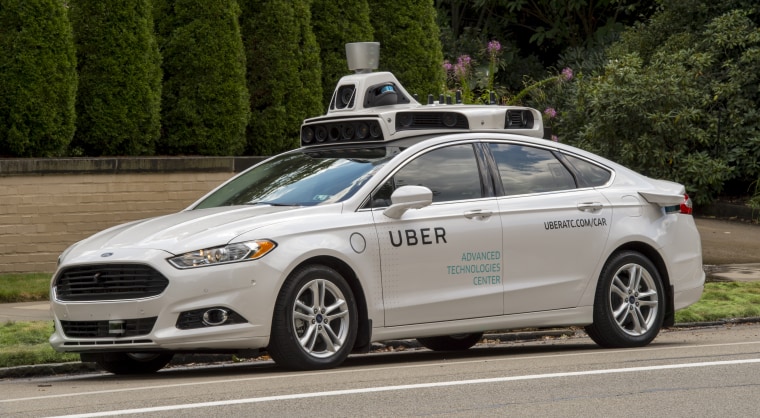Barely a week after launching a test of autonomous vehicles on the streets of San Francisco, ride-sharing giant Uber has parked its pilot fleet of modified Volvo XC90.
The move comes after the State of California pulled the registrations on the self-driving SUVs because Uber had refused to apply for the necessary permit. But the ride-sharing company had also come under intense fire because of what Uber described as a “problem” that resulted in numerous moving violations, including running red lights and failing to yield for bicycles and pedestrians.
While San Francisco Mayor Ed Lee described himself as a “strong supporter of innovation and autonomous vehicle development and testing,” he also said he was “pleased” that the state had halted the troubled project if it was unable to “put human, bicyclist, and pedestrian safety first.”
Related: Uber Whistleblower Says Employees Used Company Data to Stalk Exes and Celebs
The decision to halt the experiment launched on December 14 does not mean Uber is ready to abandon its efforts to put autonomous vehicles on the road, however.
"We're now looking at where we can redeploy these cars but remain 100 percent committed to California and will be redoubling our efforts to develop workable statewide rules," Uber said in a statement.
Meanwhile, California Department of Motor Vehicles Director Jean Shiomoto appeared ready to extend an olive branch to the company. After initially ordering Uber to cease-and-desist operations in San Francisco, Shiomoto wrote the company on Wednesday, offering to “personally help to ensure an expedited review and approval process” that could take less than three days.
Uber’s decision not to initially seek a permit before launching the San Francisco pilot generated plenty of controversy and raised questions about why it was failing to follow the process taken by 20 other companies testing autonomous vehicles in California.
One possible reason: State regulations require operators to report any problems they might run into testing autonomous vehicle technology. That includes not only crashes but instances where the human “operators” required as backup might take control of the vehicle unexpectedly.
Silicon Valley-based Waymo, the newly renamed autonomous vehicle unit of Google, has so far reported 29 minor crashes, almost all blamed on other drivers.
Uber is not required to publicly release data on another autonomous vehicle pilot in Pittsburgh, where it also has set up a self-driving research center.
Observers note that Uber has a history of resisting regulatory efforts, a fact of life for a company that has been challenging typically tightly regulated taxi and livery services. Uber has also fought efforts by many states and municipalities to step up security checks on its drivers.
Related: Uber Says It Won't Change Background Check Policy After Kalamazoo Shootings
Whether Uber will now accept the demand for a permit before launching any new testing in California is uncertain, but few doubt it will continue launching new tests of autonomous vehicle technology.
Uber CEO Travis Kalanick has said that, longer-term, the company wants to adopt fully driverless technology that would help it drastically reduce the cost of a ride, making it cheaper to use a service like Uber than owning a car.
The San Francisco-based company isn’t alone in that goal. Lyft co-founder and co-CEO John Zimmer recently predicted a sharp decline in private vehicle ownership.
“Every year, more and more people are concluding that it is simpler and more affordable to live without a car. And when networked autonomous vehicles come onto the scene, below the cost of car ownership, most city-dwellers will stop using a personal car altogether,” Zimmer wrote.
Automotive manufacturers are taking such predictions seriously. Fiat Chrysler Automobiles, for example, this week delivered 100 Chrysler Pacifica Hybrid minivans to Waymo for conversion to autonomous operation. They could eventually be used as part of a ride-sharing pilot program, the partners have said.
Related: Google and Fiat Chrysler Team Up to Develop Autonomous Vehicles
